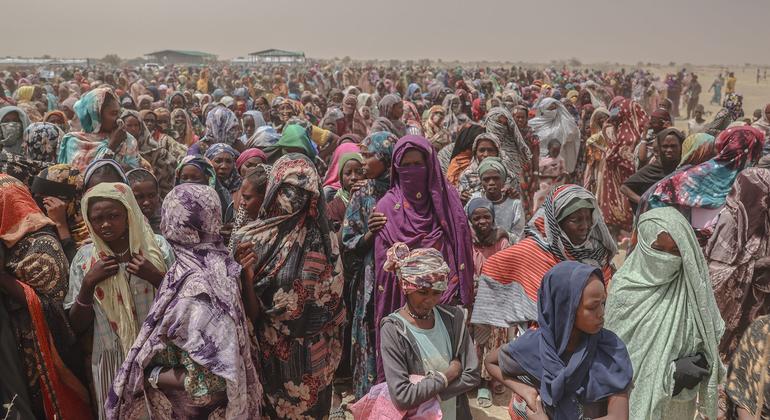Here’s the translation:
Budget cuts to humanitarian aid have left millions of people fleeing armed conflicts, particularly in Sudan, without the assistance and protection they need. The UN Refugee Agency (UNHCR) has warned that nearly $1.4 billion earmarked for programs is currently closed or suspended, due to a decrease in foreign aid from donor countries like Sweden, France, Japan, and the United States.
Dominique Hyde, UNHCR’s Director of External Relations, has emphasized the urgent need for donors to increase their funding. According to their figures, up to 11.6 million refugees and displaced persons are at risk of losing access to direct humanitarian assistance from the organization this year, a number that represents approximately one-third of the people UNHCR was able to assist last year.
The situation in Sudan is particularly dire; Hyde noted that UNHCR can no longer provide shelter for 60% of those uprooted by violence. Many of these Sudanese have crossed into Chad, primarily from Darfur, and are living in precarious conditions without access to basic shelters. Additionally, thousands of vulnerable individuals remain trapped in remote regions of South Sudan. Hyde stated that with a little more support, they could facilitate the relocation of these people to safer settlements.
Funding cuts have severely impacted essential services, such as refugee registration, child protection, and gender-based violence prevention. In South Sudan, the closure of 75% of safe spaces for women and girls has left about 80,000 without access to medical care or psychosocial support, including survivors of sexual violence.
This humanitarian disaster has led many individuals to make extreme decisions, such as attempting to cross the Mediterranean. There has been a significant increase in the arrival of Sudanese refugees in Europe, rising approximately 170% since the beginning of this year compared to the same period in 2024.
The lack of resources has also resulted in a decrease in investments to strengthen asylum systems in countries like Colombia, Ecuador, Costa Rica, and Mexico, perpetuating insecurity and excluding refugees from formal employment. This has deepened poverty and exposed these individuals to abuse and exploitation.
By 2025, UNHCR estimates that it will need $10.6 billion, but so far it has only received 23% of this amount. In this context, the organization is compelled to prioritize its efforts on saving lives and protecting those forced to flee. UNHCR warns that the rise in forced displacement worldwide, combined with the significant reduction in humanitarian aid, is creating a “lethal cocktail” that could endanger the lives of millions.
Source: MiMub in Spanish











